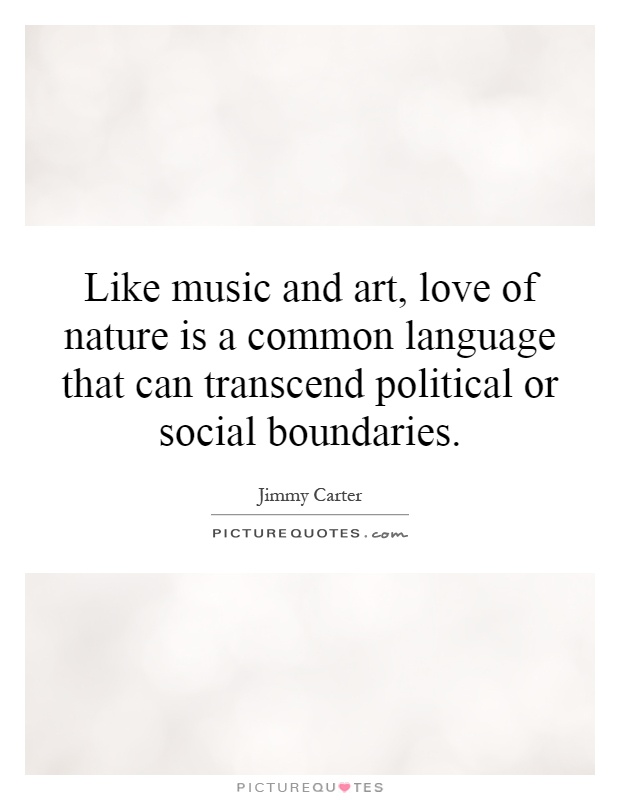Like music and art, love of nature is a common language that can transcend political or social boundaries

Like music and art, love of nature is a common language that can transcend political or social boundaries
Former President Jimmy Carter is a prime example of someone who embodies the idea that love of nature can transcend political or social boundaries. Throughout his life and career, Carter has shown a deep appreciation for the natural world and has used his passion for conservation to bring people together, regardless of their political beliefs or social backgrounds.Carter's love of nature can be traced back to his childhood in rural Georgia, where he spent countless hours exploring the woods and fields near his home. This early connection to the natural world instilled in him a sense of wonder and respect for the environment that would shape his future endeavors.
As President, Carter made conservation a priority, establishing numerous national parks and wildlife refuges, and signing legislation to protect endangered species. He also worked to promote renewable energy and reduce the country's dependence on fossil fuels, recognizing the importance of preserving the environment for future generations.
Carter's commitment to conservation has continued long after his time in office. In 1982, he founded the Carter Center, a non-profit organization dedicated to promoting peace, democracy, and human rights around the world. The center's work includes initiatives to protect the environment and promote sustainable development, reflecting Carter's belief that environmental conservation is essential for global stability and prosperity.
Carter's love of nature has also served as a bridge between people of different backgrounds and beliefs. His annual "Habitat for Humanity" builds bring together volunteers from all walks of life to construct affordable housing for those in need, demonstrating how a shared love of nature can unite people in a common cause.












 Friendship Quotes
Friendship Quotes Love Quotes
Love Quotes Life Quotes
Life Quotes Funny Quotes
Funny Quotes Motivational Quotes
Motivational Quotes Inspirational Quotes
Inspirational Quotes